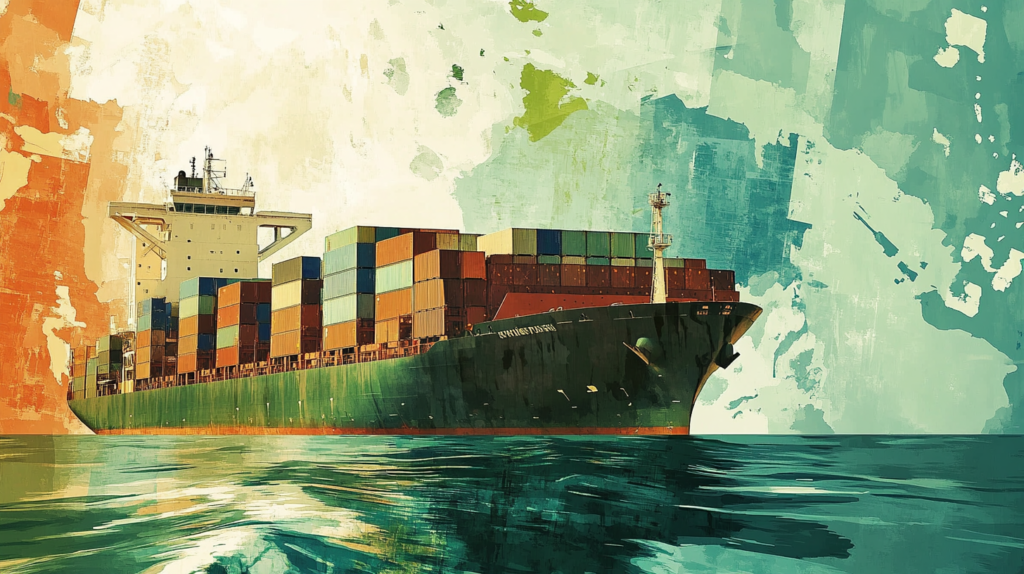Navigating Post-Pandemic Supply Chains: Strategies for Importers and Exporters

The global supply chain landscape has changed dramatically after the pandemic, creating a complex environment for businesses involved in import and export. Companies must navigate various new challenges, from shipping delays to increased costs and ever-changing regulations. This blog explores the status of supply chains today, the challenges faced by importers and exporters, and doable solutions to these problems.

The Post-Pandemic Supply Chain Landscape
The pandemic caused unprecedented disruptions in global supply chains, exposing vulnerabilities many businesses were unprepared for. These disruptions have reshaped how importers and exporters operate, with ongoing effects such as:
- Shipping Delays: Congestion at major ports and shortages of shipping containers continue to cause delays.
- Rising Costs: Increased shipping and fuel costs have led to a surge in overall business expenses.
- Regulatory Changes: New health and safety regulations have been implemented, adding complexity to international trade.
Understanding this new landscape is essential for businesses looking to adapt and thrive in the post-pandemic world.
Key Challenges for Importers and Exporters in 2024
The ripple effects of the pandemic are still felt across global supply chains, presenting several challenges:
- Shipping Delays and Port Congestion: One of the most significant issues remains the backlog at ports worldwide, leading to prolonged delivery times and supply shortages.
- Increased Costs: The rising cost of shipping has an effect on profit margins and makes it hard for companies to stick to their price plans.
- Changing Regulations: Countries have introduced new regulations, including stricter health protocols and customs requirements, further complicating cross-border trade.
To overcome these obstacles and maintain the efficiency and continuity of import and export operations, a comprehensive approach is needed.
Effective Strategies to Overcome Supply Chain Hurdles
In order to effectively navigate the intricate current supply chain landscape, firms must implement proactive methods. Here are a few crucial techniques:
Understanding Shipping Delays and How to Mitigate Them
- Diversify Shipping Routes: Steer clear of relying just on one port or shipping route. Even if they are a little more expensive, take into account other, possibly less busy routes.
- Early Planning and Forecasting: Improve your ability to predict demand and place orders well in advance to account for any delays.
Managing Increased Costs in Import & Export Operations
- Negotiate with Suppliers: Work with suppliers to renegotiate contracts, securing better terms or discounts to offset increased shipping costs.
- Optimize Inventory Management: Implement just-in-time (JIT) inventory systems to reduce storage costs and avoid overstocking.
Leveraging Risk Management for Smooth Supply Chain Operations
- Risk Assessment: Regularly assess supply chain risks, including geopolitical, environmental, and market-related factors, to stay ahead of potential disruptions.
- Build Resilient Partnerships: Establish strong relationships with multiple suppliers and logistics partners to create a flexible and resilient supply chain network.
How Big Sweet Supports Your Supply Chain Needs
At Big Sweet, we understand the complexities of the post-pandemic supply chain landscape. Our expertise in import and export and our robust risk management strategies ensure that our clients can navigate these challenges effectively. We provide tailored solutions, including:
- Comprehensive Supply Chain Analysis: We help businesses identify vulnerabilities in their supply chains and develop strategies to address them.
- Regulatory Compliance Support: Our team stays up-to-date with the latest regulations, ensuring seamless cross-border operations for our clients.
Adapting to Changing Regulations in Global Trade
Keeping up with the latest regulations is crucial for businesses to avoid costly delays and penalties. Here’s how you can stay ahead:
- Continuous Learning: Stay informed about your target markets’ latest trade regulations and compliance requirements.
- Leverage Technology: Use digital platforms for real-time tracking of regulatory changes and automated compliance management.
Big Sweet: Your Partner in Post-Pandemic Supply Chain Success
The post-pandemic era has redefined the import and export landscape, demanding a strategic and flexible approach to supply chain management. By adopting proactive strategies and partnering with experts like Big Sweet, businesses can overcome these challenges and turn them into opportunities for growth.
Big Sweet provides expert import and export services, focusing on efficient supply chain management and risk mitigation.
Big Sweet CO.
Contact us today to learn how we can help you navigate the complexities of the post-pandemic trade landscape.
Follow us on Instagram!